A taste of the future?
Generally I'm not of the school that thinks you should finish every book you start, or read something that you're going to hate just because it's on a list of 1001 books you should read before you die. When I was younger I did think more that way, now, being older and hopefully wiser, I feel that life's too short, that reading's important and that you should read because you want to, not because you feel you should.
That's not to say that I think you should live on a constant pap-diet of Mills and Boon and 50 shades of grey, Variety's important, and I do think that some books you probably should read. A bit like making sure you get your daily dose of fibre, even if it's not as tasty as Double choc chip ice cream. There are two books that I have never read that I have always felt I should - the one is George Orwell's 1984. I have tried, several times, but so far have never managed to get past the rats! The other one is Aldous Huxley's 1932 classic Brave new world. And it seemed appropriate in a week that saw the passing of Sir Robert Edwards, the IVF pioneer, to read this science fiction classic.
At the time that IVF first became a reality I remember Huxley's name being bandied about. The book is mentioned whenever there is talk of cloning, or test-tube babies, or any kind of scientific experimentation with, for example, DNA. In fact though, the book is less about any of the practicalities of any of that, and more about how humans are affected by the social codes of their day. What happens if you bring into being a completely amoral society? Does it make us as humans better or worse? Or does it really not matter? And where does God come into this?
I must admit that I found reading Brave new world made me feel physically sick. It was a very uncomfortable read. At times it was astoundingly prescient. Many of the advances of science since Huxley wrote his groundbreaking work have brought the world that he was writing of very close. In Huxley's world babies are bred in bottles sans parents. They are bred and brought up within strict class and social divisions; and brainwashed into a lifestyle that appears to be incredibly free (sex without any form of committment is the order of the day) and devoid of sadness. This is contrasted with the life of a "savage", whose moral compass is much like the average twentieth century person's, and who along with happiness, will also have his fair share of sadness. Who of the two is more free?
What is truly weird about the novel though is that it has managed to be both astonishingly in advance of its time, but also caught in a cultural time-warp. Much of the "science" now seems less astounding than it did then - it may not be accurate or currently possible, but the idea that a foetus could be operated on before birth to protect it against diseases is now within the realms of possibility; while it is already possible to screen for many genetic illnesses pre-birth. Cloning can also be done, although I would suspect that most human clones would end up being quite different from each other given variant upbringings and environments.
However Huxley's certainty that there is a universal morality backed by a belief in God (not necessarily a Christian God, but nonetheless some supernatural "other") feels rather alien to me. It's odd that reading a book set in the future but written in the past should have made me realise how far we have moved away from the mind-set of the twentieth century.
Life doesn't seem as certain as the "savages" of Brave new world feel it to be. Social mores have changed, and moral boundaries are not always as obvious; while belief in God, especially a God through whom moral codes are channelled, is starting to seem more unusual rather than being the social norm. Class still dominates society, at least in the UK, but cracks in the system are becoming increasingly large.
Yet the odd thing is that in spite of the seismic shift in the way in which twenty-first century civilization views what is morally acceptable, a move towards a more humanist society, and perhaps the beginnings of classlessness; we remain in many ways the "savage". Although the sexual revolution meant that promiscuity became possible, it didn't mean that love or committment vanished ; neither does not believing in God mean that a person loses all moral compass.
Ultimately I think that Huxley was too simplistic in his beliefs. Society will inevitably change, but that doesn't mean that it automatically jettisons all that has gone before. The irony too is that even in a society undergoing sweeping changes such as the society of Brave new world, there will always be those who retain beliefs and thoughts from the "old" society, or who just want what everyone else can't have. The top dogs of Aldous Huxley's kingdom still have their Shakespeare...
That's not to say that I think you should live on a constant pap-diet of Mills and Boon and 50 shades of grey, Variety's important, and I do think that some books you probably should read. A bit like making sure you get your daily dose of fibre, even if it's not as tasty as Double choc chip ice cream. There are two books that I have never read that I have always felt I should - the one is George Orwell's 1984. I have tried, several times, but so far have never managed to get past the rats! The other one is Aldous Huxley's 1932 classic Brave new world. And it seemed appropriate in a week that saw the passing of Sir Robert Edwards, the IVF pioneer, to read this science fiction classic.
At the time that IVF first became a reality I remember Huxley's name being bandied about. The book is mentioned whenever there is talk of cloning, or test-tube babies, or any kind of scientific experimentation with, for example, DNA. In fact though, the book is less about any of the practicalities of any of that, and more about how humans are affected by the social codes of their day. What happens if you bring into being a completely amoral society? Does it make us as humans better or worse? Or does it really not matter? And where does God come into this?
I must admit that I found reading Brave new world made me feel physically sick. It was a very uncomfortable read. At times it was astoundingly prescient. Many of the advances of science since Huxley wrote his groundbreaking work have brought the world that he was writing of very close. In Huxley's world babies are bred in bottles sans parents. They are bred and brought up within strict class and social divisions; and brainwashed into a lifestyle that appears to be incredibly free (sex without any form of committment is the order of the day) and devoid of sadness. This is contrasted with the life of a "savage", whose moral compass is much like the average twentieth century person's, and who along with happiness, will also have his fair share of sadness. Who of the two is more free?
What is truly weird about the novel though is that it has managed to be both astonishingly in advance of its time, but also caught in a cultural time-warp. Much of the "science" now seems less astounding than it did then - it may not be accurate or currently possible, but the idea that a foetus could be operated on before birth to protect it against diseases is now within the realms of possibility; while it is already possible to screen for many genetic illnesses pre-birth. Cloning can also be done, although I would suspect that most human clones would end up being quite different from each other given variant upbringings and environments.
However Huxley's certainty that there is a universal morality backed by a belief in God (not necessarily a Christian God, but nonetheless some supernatural "other") feels rather alien to me. It's odd that reading a book set in the future but written in the past should have made me realise how far we have moved away from the mind-set of the twentieth century.
Life doesn't seem as certain as the "savages" of Brave new world feel it to be. Social mores have changed, and moral boundaries are not always as obvious; while belief in God, especially a God through whom moral codes are channelled, is starting to seem more unusual rather than being the social norm. Class still dominates society, at least in the UK, but cracks in the system are becoming increasingly large.
Yet the odd thing is that in spite of the seismic shift in the way in which twenty-first century civilization views what is morally acceptable, a move towards a more humanist society, and perhaps the beginnings of classlessness; we remain in many ways the "savage". Although the sexual revolution meant that promiscuity became possible, it didn't mean that love or committment vanished ; neither does not believing in God mean that a person loses all moral compass.
Ultimately I think that Huxley was too simplistic in his beliefs. Society will inevitably change, but that doesn't mean that it automatically jettisons all that has gone before. The irony too is that even in a society undergoing sweeping changes such as the society of Brave new world, there will always be those who retain beliefs and thoughts from the "old" society, or who just want what everyone else can't have. The top dogs of Aldous Huxley's kingdom still have their Shakespeare...

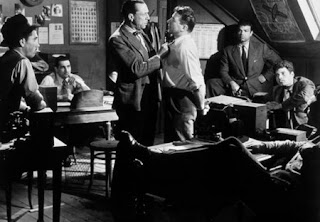
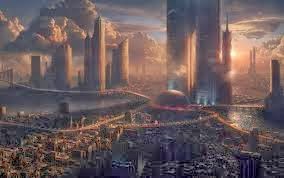

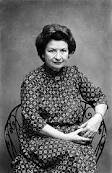
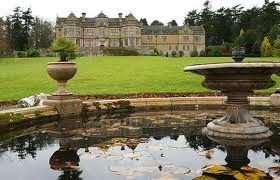
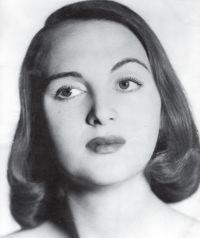
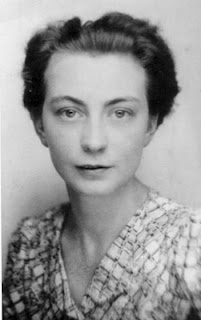

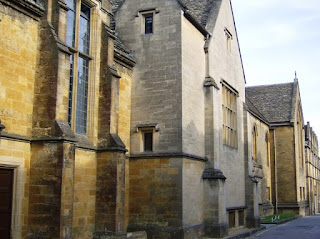
Comments